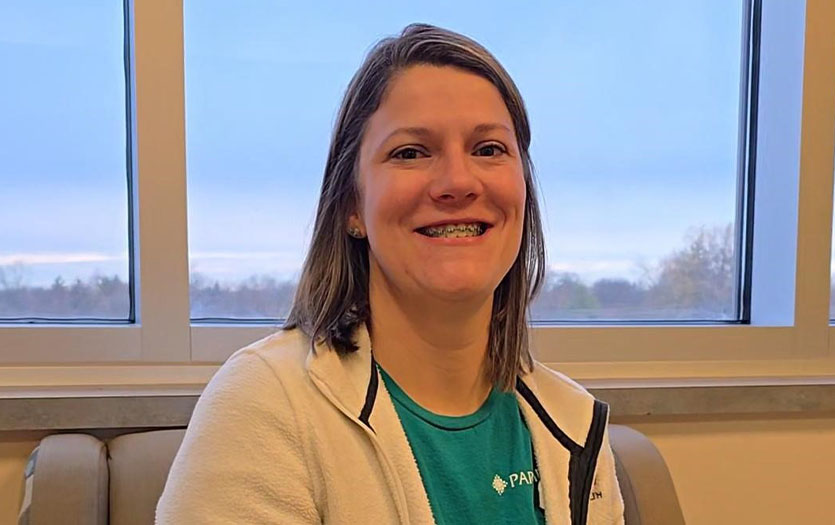
This post was written by Richard Hite, PhD, clinical psychologist, Park Center, Parkview Behavioral Health Institute.
Research shows that about 95% of the decisions we make every day are on autopilot; habitual, repetitive, instinctive, often emotion based. This is referred to as the “thinking fast” system of decision-making. This habitual process can be good, as it saves energy and allows space for “thinking slow,” where our strategic thinking, our focused problem-solving, and our long-term planning takes place for the “bigger” decisions in life.
These habits of daily living serve us well. That is, until we find ourselves “practicing” and reinforcing repeated behaviors and actions that do not move us toward the goals we value in life. Almost any aspect of our behaviors, our personal traits, our coping styles, has the potential to be both over-used and to be under-used. The goal is to find that sweet spot of what works, where it works and how to make it work better.
Feedback
Others can, and often will, give us feedback on repetitive patterns in our behaviors and views. This feedback from others can be helpful, most (or at least some) of the time. Feedback that is thoughtful, specific and tied to ways to improve, can be life changing. Encouraging this kind of constructive feedback exchange with others is a great habit to have and nurture. But we are actually our best source of feedback. Each of us is the best source of information on the effectiveness of our habits, and in the end, the only judge of how successful our autopilot decisions are moving us toward the goals we value.
Markers of progress
We recently marked the passing of Shamhain, the Gaelic ritual that evolved into our Halloween celebration. This ancient tradition in the Gaelic culture, like many other repetitive events, was intended to mark a transition. For this celebration of Shamhain, it was the shift from growing to harvesting crops and the change from longer to shorter days of light. It was an important “habit” to honor, when there were fewer better things in the Gaelic culture to help people mark the passage of time and measure their success in achieving goals. For our success today in achieving our personal goals and finding meaningful aspects each day in our lives, we need to find and use the most effective “markers” of our progress.
One such highly effective tool of tracking and improving our progress toward what we consider important goals is found in the science of positive psychology. This field of study and practice has grown-up over the past couple of decades under the guidance of Dr. Martin Seligman, the “father of positive psychology.” This field focuses on gaining a better understanding and making use of the repetitive “habits” that each of us employ every day to cope, succeed and flourish. This highly studied and evidence-supported development about our behaviors, recognizes that sometimes our habitual activities can interfere in reaching our goals. However, this field is more focused on what aspects of our approach to living keeps us moving and growing toward what is meaningful and positive in life. Just as an ancient ritual could remind people of important transition points and help them celebrate success, so too can a “tool” of modern-day science serve the role of helping understand, make use of, and celebrate living positively.
Character strengths
Within positive psychology, one handy tool is understanding and shaping what are referred to as our “character strengths.” These are the aspects of our basic identity that allow us to boost our well-being and to better handle difficult times. In this blend where the findings of science meet our daily practice habits, the use of the term “character” is plural. There are 24 unique character strengths. They work or support our activities in “clusters” or groupings of character strengths. They have been consistently identified across cultures and countries as being key to how we use the other resources and forces that come into our lives.
We each have within us all 24 strengths. It’s an aspect of how much we employ these strengths, when and where we practice them, and how well we recognize or celebrate the transitions to better using them.
Character strengths are not good or bad, they are just available and part of what make us human. Learning how to better practice and focus these character strengths, these habits of how we approach and shape our lives, can greatly aid us in achieving and celebrating our progression toward a meaningful and full life. The good news is, that like other habits that make up much of our daily life, these character strengths can be “cultivated” and improved though practice. Empowered with a greater awareness of these core strengths, we are better able to seek and use feedback from others and to cultivate the strongest and healthiest habits within ourselves.
Identify your character strengths
Some examples of the 24 unique character strengths are: Zest, Hope, Love, Gratitude, and Curiosity. You can learn about how you value or rank the 24 character strengths from your own view of what is important in your life, by completing the Value In Action questionnaire (VIA). This survey is free, and your individual responses will be added to the over 15 million completions already done by individuals interested in flourishing. Upon completion you will see how your character strengths describe or reflect your current pathway in life, and how they promote new pathways forward!
To learn about your character strength summary, go to the University of Pennsylvania’s positive psychology research website and start your journey by clicking on the site in the middle of the page under “Questionnaires.” In return for your investment of time you will get information on your character strengths. Of particular use will be more information about your top 5, your “signature” character strengths. Our signature strengths are core or essential to who we are, the most energizing and uplifting when we use them, and the easiest to access and practice.
These five are positive habits, that can become stronger, effortless ways to find greater meaning and satisfaction. Once you see the connections in your engagement with your world, and see how these strengths fit into your relationships, you can utilize information available on this website and other resources for positive psychology to dig into different activities and exercises to increase your awareness of and command over positive actions.
It is essential and worthwhile to know what character strengths you carry most often and use them effectively to make your life meaningful!



